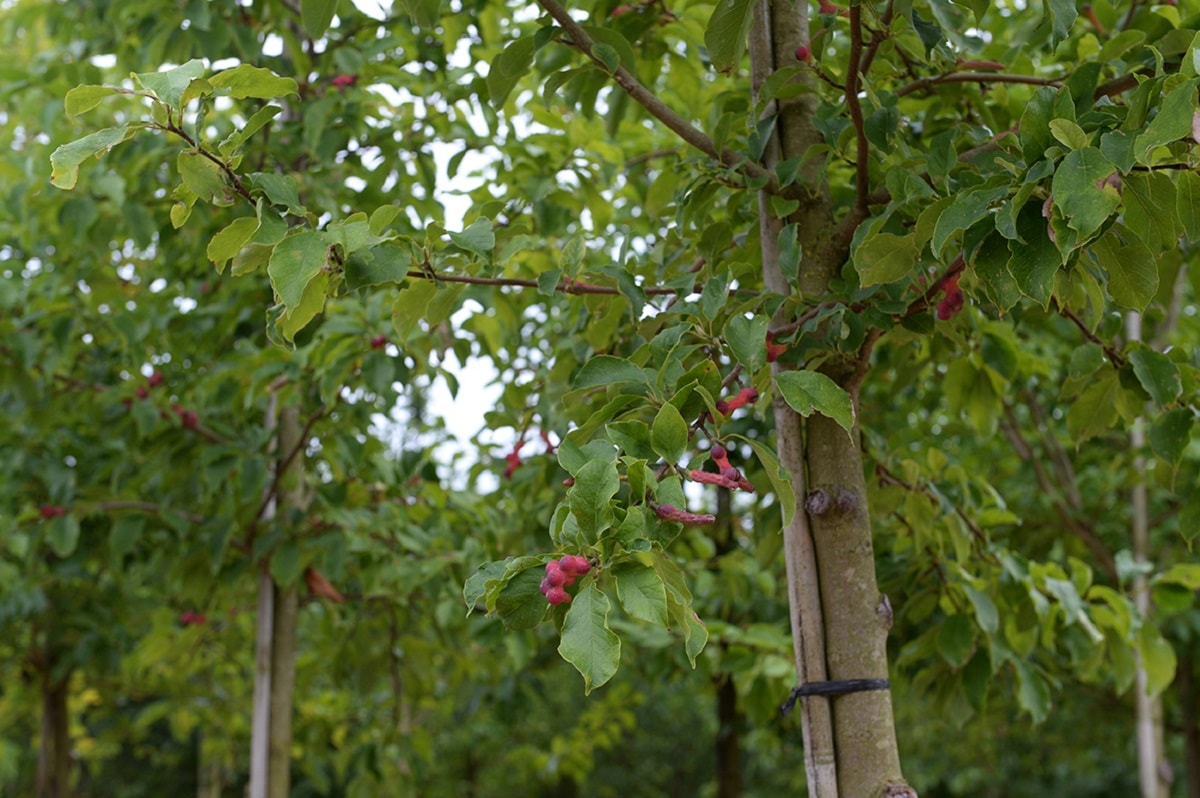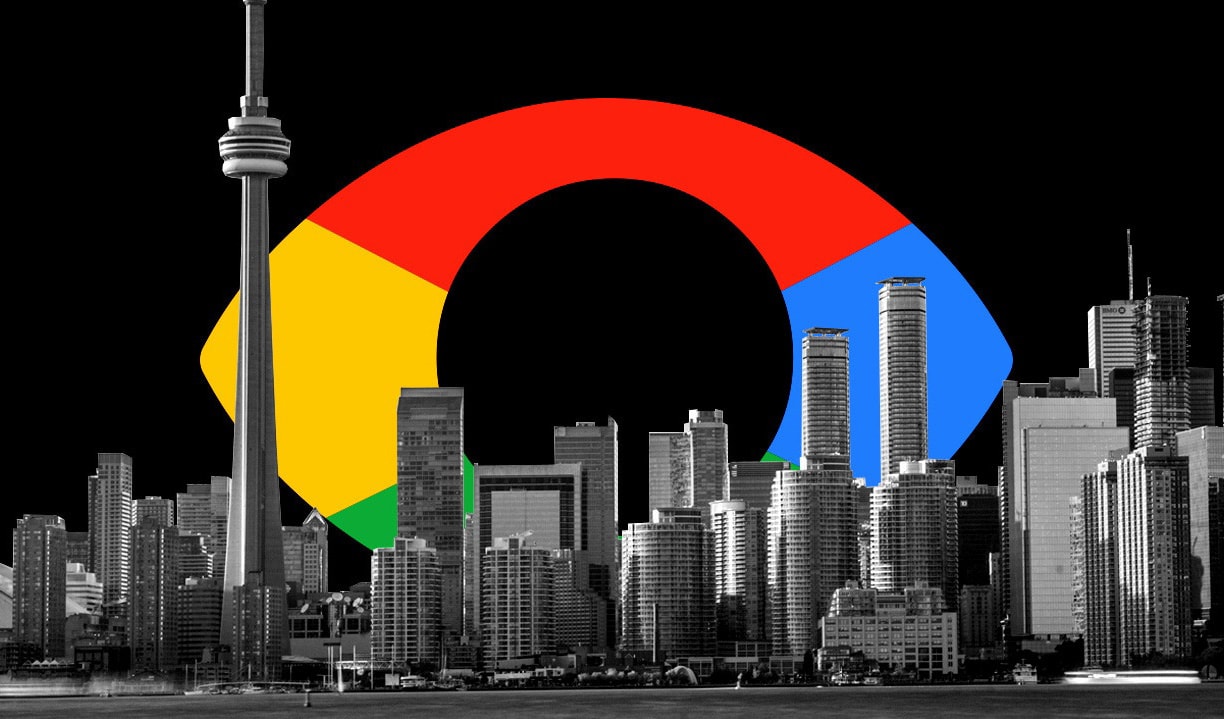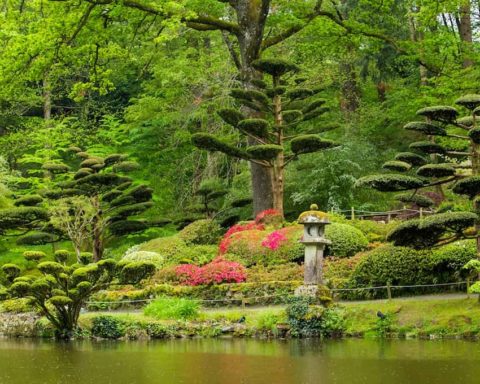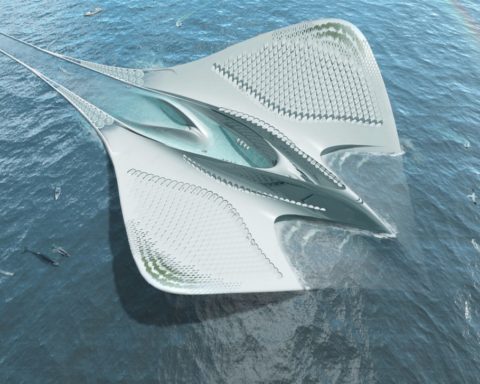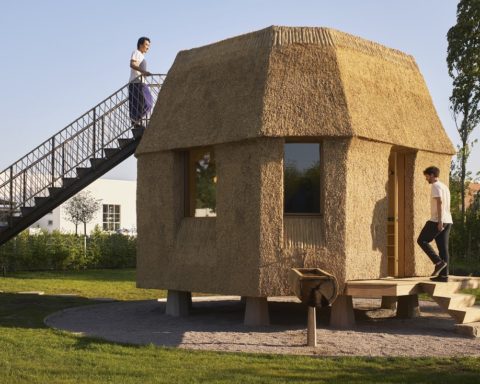This is the cry from the heart of the deputy mayor of Angers, in charge of the environment and green spaces, during an interview for UP'. 100,000 trees are to be planted in Angers, putting the city at the top of the Green Cities Observatory's ranking, which analysed the greening policies of France's 50 largest cities. Result: Angers, Nantes, Metz, Amiens and Lyon are in the top 5 greenest cities. Trees are considered to be a key player in the urban environment, in the face of climate change, which in recent years has emerged as the global challenge to be met.
Cities are well aware of their particular vulnerability given the high concentration of population and the concentration of infrastructure and material goods on their territory. With the increase in summer temperatures and the frequency of heat waves, cities are now more concerned by the phenomenon of urban heat islands, which can reach several degrees of difference between a tree-covered area and a purely mineral area. This is why some cities, such as Angers, have opted to plant urban forests that can combat galloping urbanization and the resulting heat waves.
All over the world, trees are being planted, as in England where, in May 2019, theUrban Tree Challenge Fund was launched: 130,000 trees will be planted over the next two years. It is a program managed by the Forestry Commission and opens to individuals, local authorities, charities, and NGOs.
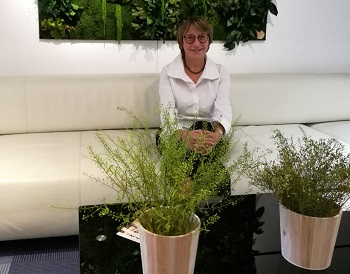
In France, in Angers, 100,000 trees have begun to be planted, with the ultimate goal of 140,000. The inhabitants are themselves lobbying, supporting the general scheme of elected officials to transform the vision of a more sustainable, more resilient city of tomorrow. Plants are a constituent element of the identity of Angevine. As early as the 15th century, King René, Count of Provence, acclimatised Mediterranean plants in Angers. In the 19th century, the Angevin André Leroy gave his first letters of nobility to the professions of horticulturist and nurseryman. During the 20th century, researchers and nurserymen came closer together. This fruitful collaboration foreshadowed Végépolys, the international competitiveness cluster set up in Angers in 2004.
Interview with Isabelle Le Manio, in charge of Environment and Green Spaces :
Why not enjoy unlimited reading of UP'? Subscribe from €1.90 per week.
Angers is not the only city to plant trees. Many mayors are approaching the Municipalities, focusing their campaigns on the ecology and vegetalisation of their cities. One example is Anne Hidalgo, candidate for re-election, who wants to massively plant the capital by replanting a tree for each new birth (170,000 trees are planned). A project similar to the city of Brussels in Belgium, which celebrates each birth by planting a tree, as well as newly planted trees in Metz, Nancy, Tours, etc.
Would planting trees become the new Eldorado of political promise?
A few days before the municipal elections - which will be held on 15 and 22 March - many mayors want to plant, somewhat in the form of a bidding war: in Le Mans, 30 000 trees will have to be planted in six years, even if, to date, there is a controversy over a magnificent cedar threatened by housing construction; in Lyon, 500 000 trees and shrubs; in Arras, the proposal is to plant a million.
A good thing," says Harold Levrel, a professor of environmental economics at AgroParisTech who is working on the Idefese project, an evaluation of the benefits that greening policies for urban areas in the Île-de-France region could provide, knowing that when asked the question "How would you define the city of the future? 53% of the French answer is: "A city where nature plays a central role".
A recent EESC opinion contains several recommendations for building resilient, liveable, and sustainable cities. It stresses the role of urban nature and suggests that biodiversity should be a central element of urban development policies (spatial planning, housing transport, health, agriculture, etc.):
"Nature in the city" is at the heart of contemporary issues. By providing major ecological services (reduction of pollution, heat islands, run-off water, etc.) in an increasingly dense and mineral-rich urban environment, nature in all its forms is essential to meet the environmental challenges of global warming and the erosion of biodiversity, but also to contribute to a more pleasant living environment and to meet human health issues. In order to speed up the process of "renaturing" cities, this opinion wishes to emphasise the need to include nature in all public policies and to make it a structuring element of urban planning. The EESC emphasises the social importance of "nature in the city", which must meet the needs of the inhabitants, but must also contribute to the solidarity of cities with the countryside, which is constantly being artificial as a result of urban sprawl. »
"For municipal, I vote #MaVilleVegetale."
Merci Raymond, an eco-responsible startup determined to restore the place of plants in urban environments, is launching a communication campaign entitled "For municipal residents, I vote #MaVilleVegetale". While Merci Raymond published last May its first book "Tous acteurs de la Révolution Verte" in which the startup already evoked solutions to make our cities greener, more sustainable and resilient, it has imagined, on the occasion of the next municipal elections, concrete actions for the city of Paris to raise awareness of the benefits of green. The startup is thus launching a call for citizen mobilization and proposes ten recommendations for a greener city, so that everyone, at their own level, can truly take part in the Green Revolution.
On the occasion of the Municipalities, the startup broadcasts on its social networks committed and inspiring messages followed by the hashtag #MaVilleVegetale. The goal: to raise awareness among all of us and directly challenge candidates to take these green recommendations into account in their programs. At the same time, and still, with the aim of appealing to as many people as possible, the teams of gardeners will soon be going out into the streets of the capital to carry out plant tags.
Note that the 7th Producers' Apéro - "What if our chefs were mayors? "will take place on Monday, March 9 from 7 to 8 pm. The startup is organizing, in partnership with Ecotable, its 7th Producers' Apéro in its restaurant Le Relais (10 rue Vacquerie, 75011 Paris).
Ecosia: growing trees and consciences
Ecosia, the famous search engine works like any classic search engine, but with one major difference: their benefits are used to plant trees where they are needed.
In his fascinating conference to launch the Biodiversity Challenge, Gilles Bœuf first of all reminded us of the obvious: we are part of living things. So why were we cut off from it? Why did we put it at a distance?
The Biodiversity Challenge is the desire to become one with the living, in all its diversity. It is the need to regenerate it. It is an invitation to put the temptation to collapse at a distance in order to act, from where we are.
For Ferdinand Richter, Ecosia's French Manager: " For me, Ecosia is not a compensation tool. The idea is not to enter into the belief that it is enough to compensate to solve the problems we are facing today. There is a real urgency to have an honest debate on this. Beyond planting trees, our mission is to regenerate ecosystems. Trees are a tool that makes it possible, especially in areas most heavily affected by global warming where natural environments have been most heavily exploited, to help nature regenerate itself while reestablishing local economies linked to agroforestry, permaculture, edible forests, etc. Contrary to what one might think, Ecosia is therefore above all a tool for regenerating ecosystems and local economies, and not a competitor to Google."
To fight against disinformation and to favour analyses that decipher the news, join the circle of UP' subscribers.
Garden cities
Faced with increasing urbanization and the densification of our cities, it is an absolute necessity to reintegrate plants and nature into the city, on a scale that goes far beyond plant walls and green roofs. This is the whole point of Anna Yudina's magnificent book "Villes-Jardins" (1) which encourages us to follow the path indicated by Ray Kurzweil, inventor and artificial intelligence guru at Google, according to whom "the hybridization of biological and non-biological intelligence" will be one of the key features of our world of tomorrow. In this book, Luis Bettencourt, a physics theorist and expert on complex systems, is currently developing a mathematical theory of the city, and sees the gardener's attitude as the most relevant and life-friendly approach to urban planning [...].
" The garden city is an organism in its own right, where the natural and the artificial, the built and the cultivated, the "organic" and the "digital" merge to live and breathe. "So what might the next steps in the fusion of nature and city look like?
Let us recall that "Repetitive, unavoidable, inevitable, familiar, sacred, wild, cultivated, daily, the tree is from the outset an essential motif in our visual environment. Immediately identifiable, it announces by its very presence that of nature itself. This inspiring nature that painters and poets apprehend and reconstruct through the landscape. We are the heirs of this visual history. » (2).

(1) " Villes-Jardins ", by Anna Yudina - Editions Ulmer, 2017
(2) « The tree in the painting« by Zenon Mezinski - Edition Citadelles & Mazenod, 2018
To go further :
- " Urban disasters. Cities are also dying "by Thierry Paquot, Edition La Découverte, 2015.

